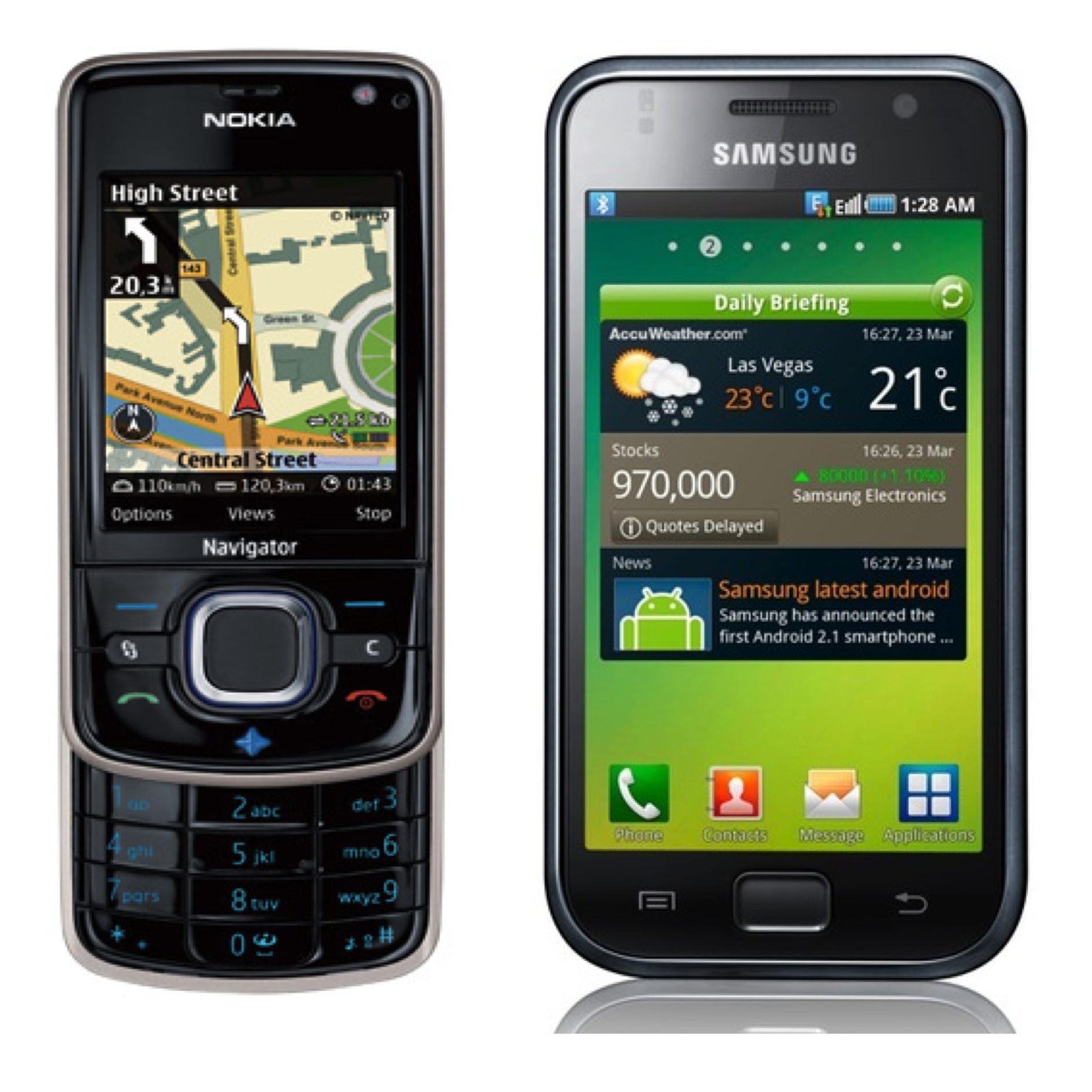Efficient Social Sensing based on Smart Phones
Mobile smart phones represent a perfect platform for building systems to capture the behaviour of users in the work-places, as they are ubiquitous, unobtrusive, and sensor-rich devices. However, there are many challenges in building such systems: mobile phones are battery powered and the energy consumption of sensor sampling, data transmission, and resource intensive local computation is high, the mobile phone sensors are inaccurate and not specifically designed for the purpose of capturing user behaviour, and finally, the local and cloud resources should be used efficiently by considering the changing mobile phone resources.
 We address the above technical challenges for supporting social sensing applications in a paper to be presented at the upcoming ACM MobiCom '11 conference.
We address the above technical challenges for supporting social sensing applications in a paper to be presented at the upcoming ACM MobiCom '11 conference.
In the paper we describe the design, implementation, and evaluation of SociableSense, an efficient and adaptive platform based on off-the-shelf mobile phones that supports social applications aiming to provide real-time feedback to users or collect data about their behaviour.
The key components of the system are:
- A sensor sampling component adaptively controls the sampling rate of accelerometer, Bluetooth, and microphone sensors while balancing energy-accuracy-latency trade-offs based on reinforcement learning mechanisms. The learning mechanism adjusts the sampling rate of the sensors based on the context of the user in terms of events observed (interesting or not), i.e., the sensors are sampled at a high rate when there are interesting events observed and at a low rate when there are no events of interest.
- A computation distribution component based on multi-criteria decision theory dynamically decides where to perform computation of tasks by considering the importance given to each of the dimensions: energy consumption, latency, and data sent over the network. Â For each classification task that needs to be processed, this scheme evaluates a utility function to decide on how to effectively distribute the subtasks of the classification between the local and the cloud resources.
We show through several micro-benchmark tests that the adaptive sampling scheme adjusts the sampling rate of sensors dynamically based on the user's context and balances energy-accuracy-latency trade-offs. We also evaluate the computation distribution scheme in terms of selecting the best configuration given the importance assigned to each performance dimension, and show that the computation distribution scheme efficiently utilises the local and the cloud resources and balances energy-latency-traffic trade-offs by considering the requirements of the experiment designers.
To further demonstrate the effectiveness of the SociableSense platform, we also conduct a social experiment using an application that determines the sociability of users based on colocation and interaction patterns. The use of computation distribution scheme leads to approximately 28% more battery life, 6% less latency per task, and 3% less data transmitted over the network per task compared to the model where all the classification tasks are computed remotely.
Kiran K. Rachuri, Cecilia Mascolo, Mirco Musolesi, Peter J. Rentfrow.  SociableSense: Exploring the Trade-offs of Adaptive Sampling and Computation Offloading for Social Sensing. In Proceedings of the 17th ACM International Conference on Mobile Computing and Networking (MobiCom '11), Las Vegas, USA. [PDF]
Pages
Categories
- Awards
- Conference
- Distributed Systems
- Energy
- Location
- Measurements
- Mobile
- Networks
- Operating Systems
- Parallelism
- Programming
- Rants
- Research Agenda
- Sensors
- Social
- Storage
- Uncategorized
- Workshop
Blogroll
Archive
- March 2018
- February 2018
- November 2017
- April 2016
- August 2015
- January 2015
- November 2014
- September 2014
- August 2014
- June 2014
- December 2013
- November 2013
- October 2013
- September 2013
- August 2013
- July 2013
- April 2013
- October 2012
- September 2012
- July 2012
- June 2012
- May 2012
- April 2012
- March 2012
- February 2012
- January 2012
- October 2011
- September 2011
- July 2011
- June 2011
- May 2011
- April 2011
- March 2011
- January 2011
Leave a comment